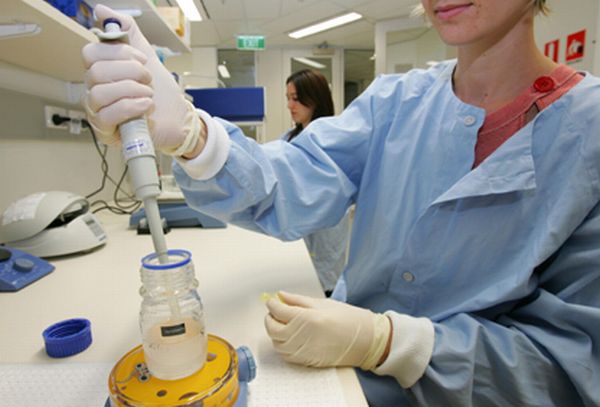
IVF or in vitro fertilization is a treatment for infertility. It is known to be one of the best treatments for certain kinds of fertility problems. But the fact is that it may not be successful for every couple who takes the treatment. Besides, the person undergoing the treatment will have to bear a lot of strain on the body. So before taking up this treatment, it is better to know the complete details and understand the processes and risks associated with it. You will also know your chances of becoming pregnant by using this technique. Here is a brief account of in vitro fertilization.
In normal conditions, the sperm and the egg from the man and the woman meet in the Fallopian tube. This tube connects the womb and the ovaries. The egg that gets fertilized, is then passed to the womb where it gets embedded and continues its further development. But, in people who have fertility problems, these normal processes do not occur naturally. The fertilization of the egg is done outside the woman’s body in a laboratory. And the fertilized egg is then surgically placed inside the woman’s womb for further development. So, it is popularly known as Test tube Baby.
During the process, the eggs are removed from the woman’s body with the help of a surgical procedure. It is then fertilized in the lab using the specimen sperm collected from the partner. The fertilized egg or the embryo is then surgically transplanted into the woman’s uterus.
Processes of IVF treatment
1. The person has to take some fertility drugs in the form of injections to stimulate the production of eggs.
2. A vaginal ultrasound scan is used for monitoring the egg production.
3. The surgeon uses a fine needle and passes it through the vagina to the ovaries to collect the eggs. This is carried out using a mild sedation or even a general anesthesia. Usually about 9-10 eggs are collected.
4. Sample of the sperm is collected from the partner.
5. The eggs and the sperm are mixed in the laboratory. If any egg gets fertilized it is called the embryo.
6. Progesterone is given to the woman to thicken the uterus lining and prepare for the pregnancy.
7. Most healthy and viable embryos are selected and placed in the uterus through the vagina. This procedure is done after about two or three days of fertilization.
8. After about two or three weeks, ultrasound scan is used for determining the result of the efforts; as to whether the woman has become pregnant or not.
Risks of IVF
Just like any other treatment, IVF also has its own advantages and disadvantages. IVF may be successful for most of the patients who are not able to get pregnant naturally. However, there are certain risks associated with the treatment. Some of the risks are listed below.
1. Failure
IVF treatment is not a sure hit for pregnancy. The fact is that only about 20-25 percent of the trials result in child birth. The success rate is better in younger woman than in the older ones.
2. Multiple pregnancies
Most often the IVF treatment results in multiple pregnancies where the woman may have to give birth to twins, triplets etc. This is because more than one healthy embryo gets implanted in the uterus. This can cause a lot of strain on the mother and the babies too. Other health problems can also result due to multiple pregnancies.
3. Ovarian hyper stimulation syndrome
Since the doctors use a lot of drugs to stimulate egg production it can lead to a serious condition known as the ovarian hyper stimulation syndrome. This causes the enlargement of ovaries and may be painful too. Other symptoms include fluid retention in abdomen, shortness of breath, blood clot formation etc. In certain cases, the person may have to stay in the hospital.
4. Infection
The treatment involves a lot of surgical procedures. So there are chances of infection due to the devices used. Surgical hygiene is extremely important. In case of infection, antibiotics are beneficial for treating the condition.
5. Psychological and emotional problems
The couple undergoing IVF treatment also has to undergo a lot of stress and strain. They may have to travel to and fro a lot of times which can be emotionally and physically demanding. This can result in depression as well. People who are ready to undergo this treatment should be offered proper counseling about the complete procedures so that they can cope with it. Once they are aware of everything they will be able to deal with the situation in a better way.


